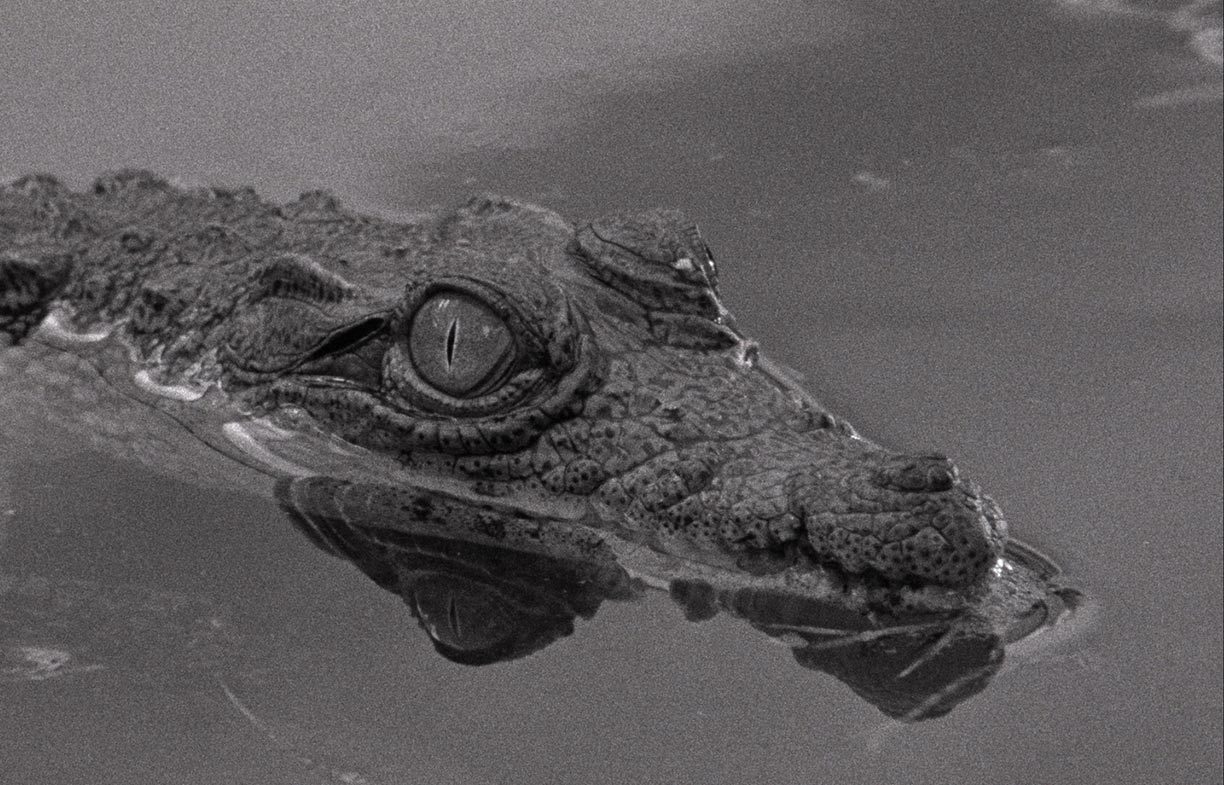Director: Miguel Gomes
Runtime: 113 minutes
A quiet sense of enchantment looms over critic-turned-director Miguel Gomes' film Tabu. The style of magical realism, prevalent throughout, has generally been better suited to the page than the screen (hence the middling reviews for the film adaptation of Midnight's Children). And yet, by keeping his ambitions focused and modest, Gomes has crafted a 21st century work of magical realism that casts a spell through only a handful of simply aesthetic choices.
Split into two parts (Paradise Lost and Paradise), along with a mystical prologue, Gomes' film starts with Pilar (Teresa Madruga) interacting with her elderly neighbor Aurora (Laura Soveral). As Aurora becomes more and more senile, she begins rambling about a pet crocodile and a man named Ventura (Henrique Santo). Pilar finally tracks down Ventura, who recounts his love affair with Aurora in colonial Africa.
Whereas part one is a more typical story, part two is where Gomes slowly lets loose. Aside from natural sounds (wind, birds, etc...), Tabu almost becomes a silent film in its second hour. Carried strictly by visuals and Ventura's narration, Gomes transforms his film from light character drama/comedy to classic love story. It's a choice that feels seamless, rather than abrupt, despite the abundance of title cards indicating passing days and months. And, as is appropriate, the performances have a broad, old-fashioned panache that is wholly engaging, rather than stiff or dated. In playing with classic storytelling devices and breaking them up in such elegant ways, the director evokes the beauty of storytelling as it passes from one generation to the next, and how the past informs the present, and vice versa.
Yet aside from the presence of a possibly symbolic crocodile (who might have been my favorite cast member), the magical quality of Tabu stems entirely from its atmosphere, rather than any fanciful plot devices or characters. Gomes luxuriates in the settings of the Paradise segment, yet he never allows the plot to meander in and out of focus. Whereas Paradise Lost is divided by a set of rigid divisions, entire months go by in Paradise in the course of a few minutes, particularly toward the end.
Gomes also introduces a fair amount of humor throughout the film to lighten the mood. Despite the passionate emotions running through Tabu, the film is always light on its feet, even during the most languid stretches. There is a hard-to-describe quality to the film, which becomes more thematically complex when it jumps back to Africa, that lends its simple tale a sense of something greater. As focused on a group of individuals as the film is, later portions carry an undeniable trace of social commentary on the gradual upheaval of the European powers across their African colonies. Like the best stories, Tabu has many straightforward elements, yet they once assembled they evolve into a much richer work filled with subtle surprises.
Grade: B+/A-

No comments:
Post a Comment